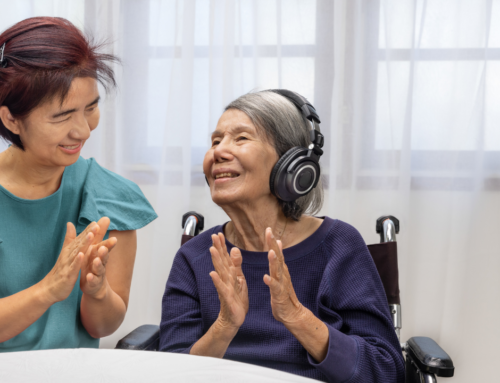Share This Story!
Is Alzheimer’s The Same As Dementia?
Alzheimer’s is a form of dementia that affects over 5 million Americans and is the nation’s 6th leading cause of death. This degenerative disease affects the brain’s ability to perform tasks and remember information. People with this disease tend to be age 65 and older.
What are the symptoms of Alzheimer’s?
Alzheimer’s can affect people younger than 65. Doctors refer to the phenomenon as early onset Alzheimer’s when this happens. Memory loss is one of the prime symptoms of Alzheimer’s disease. Typically, Alzheimer’s symptoms are mild at first and progressively get worse. Identifying the signs early can help patients get the proper care. Here are some signs of Alzheimer’s disease.
- Frequently misplacing items
- Disorientation
- Unwarranted suspicion of family members and friends
- Difficulty speaking
- Trouble swallowing
- Poor judgment
- Sudden changes in personality or behavior
The symptoms of Alzheimer’s disease may seem similar to symptoms of mental illness but there is a key difference. Alzheimer’s is not a mental illness; this disease is a brain disorder. The disease impairs the brain and affects basic functions like speaking and eating. This is why people living with Alzheimer’s need proper medical attention as soon as the condition is diagnosed.
How does Alzheimer’s disease lead to death?
As the disease progresses, the brain can no longer send messages to other parts of the body. Some patients with Alzheimer’s can live up to 20 years after diagnosis, but most patients pass away after 4-8 years. Usually, serious complications start to arise during the mild to moderate stage of the disease. People suffer from heart breathing and digestion issues. Patients start losing the ability to chew and swallow and stop eating. The lack of nutrition oftentimes leads to death.
Should people with Alzheimer’s be in a nursing home?
The proper treatment plan may or may not include a long-term care facility. Ultimately, the decision is up to the person’s family and caretakers. Once a person reaches the moderate stage of Alzheimer’s, in-home care by family members can be challenging to provide. The patient may also need constant medical supervision by professionals to track health issues. The type or level of professional care may vary by person, but professional medical help is necessary.
What are my options?
Several different care options include respite care, adult day centers, assisted living facilities, Alzheimer’s care units, and more. Families can also explore in-home care services like homemaker, companion, and skilled care. Schedule an appointment to talk to the patient’s healthcare provider to learn more. With the help of a physician, patient families can develop a comprehensive care plan and discuss different care options.





